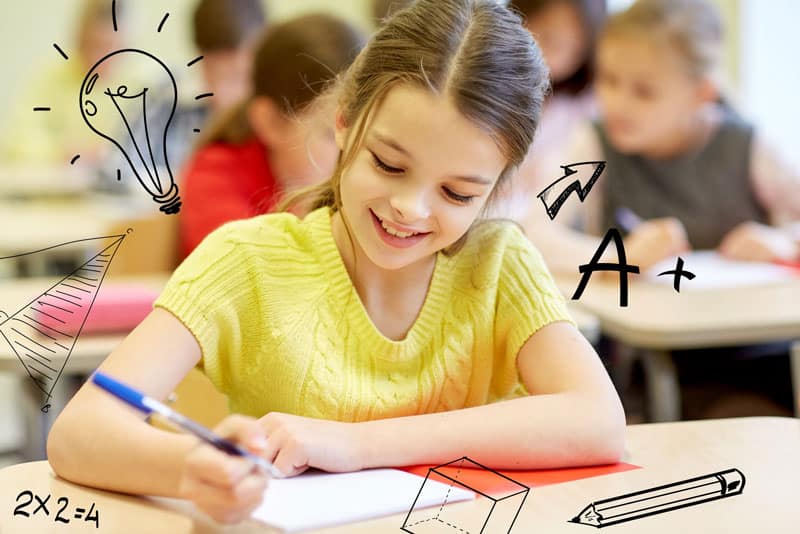Last Updated on January 15, 2025
To improve child academic performance, encourage them to do their own research on learning, building focus, and improving memory using online resources. Ask them about their struggles and involve teachers to address concerns effectively.
Avoid labeling the child based on grades to foster a positive educational environment. Instead, be genuinely interested in their school life, help with homework, and monitor their school activities by reviewing assignments, textbooks, and diaries. Developing a partnership with your child’s teachers and school staff can also greatly support their academic progress.
Remember, fostering a supportive and engaged approach is key to helping your child succeed in school.
Identifying Areas Of Improvement
Identifying and addressing areas of improvement is crucial to enhancing a child’s academic performance. By assessing your child’s strengths and weaknesses, observing their study habits and time management skills, and identifying any learning difficulties or challenges, you can help them excel in their studies.
Assess Your Child’s Strengths And Weaknesses
Assessing your child’s strengths and weaknesses is essential to provide them with targeted support. Take note of their academic achievements and areas where they struggle. This evaluation will help you understand their aptitudes and identify subjects or skills that require improvement.
Observe Their Study Habits And Time Management Skills
Observing your child’s study habits and time management skills allows you to identify any areas that need adjustment. Pay attention to how they organize their study materials, allocate time for homework, and handle distractions. By understanding their study routines, you can help them develop efficient study strategies and optimize their learning process.
Identify Any Learning Difficulties Or Challenges
Identifying any learning difficulties or challenges your child may face is vital for their academic progress. Observe their performance across subjects and look for patterns of struggle. If you notice persistent issues in areas such as reading, math, or comprehension, it may indicate a learning difficulty that requires professional intervention. Consulting with teachers or educational specialists can help pinpoint specific challenges and develop appropriate interventions.
By focusing on these areas of improvement, you can create a tailored plan to enhance your child’s academic performance. Remember, every child is unique, and understanding their individual strengths and challenges is key to providing effective support.

Credit: www.moultriehealth.org
Creating A Supportive Environment
Improve your child’s academic performance by creating a supportive environment. Encourage independent research, engage with teachers, and provide assistance with homework. Monitor their progress and avoid labeling or putting them in a box. Foster a positive relationship with education to help them succeed.
Creating a supportive environment is crucial for improving a child’s academic performance. By establishing a consistent study routine, providing a quiet and well-organized study space, and encouraging healthy lifestyle habits, parents can enhance their child’s focus, concentration, and overall learning experience.
Establish A Consistent Study Routine
It’s essential to establish a consistent study routine for your child. Having a structured schedule helps them develop discipline, time management skills, and a sense of responsibility towards their studies. Consider implementing the following practices:
- Set specific study hours and stick to them every day.
- Break down study sessions into manageable chunks to avoid overwhelming your child.
- Encourage short breaks between study sessions to prevent mental fatigue.
- Ensure they have enough time for restful sleep to support their cognitive function.
Provide A Quiet And Well-organized Study Space
Having a dedicated study space is essential for minimizing distractions and promoting focused learning. Consider the following tips to create an ideal study area for your child:
- Choose a well-lit area with minimal noise and visual disturbances.
- Keep the study space clutter-free and organized to enhance concentration.
- Ensure they have access to necessary study materials, such as textbooks, notebooks, and stationery.
- Set up a comfortable workspace with an ergonomic chair and desk at an appropriate height.
Encourage Healthy Lifestyle Habits For Improved Focus And Concentration
A child’s academic performance greatly depends on their overall well-being. Encouraging healthy lifestyle habits can significantly improve their focus, concentration, and cognitive abilities. Consider the following suggestions:
- Promote regular physical activity through sports, exercise, or outdoor play.
- Ensure a balanced and nutritious diet to provide essential nutrients for brain development and optimal functioning.
- Limit screen time and encourage leisure activities that stimulate creativity and critical thinking.
- Encourage good sleep hygiene by setting consistent bedtimes and creating a calming bedtime routine.
Effective Learning Strategies
Improve your child’s academic performance with effective learning strategies. Encourage independent research, develop focus and memory skills, and collaborate with teachers for a personalized plan. Be a positive force, support their learning, and help with homework. Avoid labeling and nurture their strengths.
Improving a child’s academic performance requires the implementation of effective learning strategies. These strategies focus on enhancing their note-taking abilities, active reading and comprehension skills, as well as fostering critical thinking and problem-solving capabilities. By incorporating these strategies into their daily study routine, children can develop essential skills that will not only improve their academic performance but also lay a strong foundation for their future success.
Teach Effective Note-taking Techniques
Teaching children effective note-taking techniques is a valuable skill that can significantly improve their academic performance. Encouraging them to take organized and concise notes during class lectures or while reading textbooks enables them to retain and review important information more efficiently. Here are a few tips for teaching effective note-taking techniques:
- Use abbreviations and symbols to shorten words and phrases
- Highlight key points or important information
- Create visual aids, such as diagrams or mind maps, to represent complex concepts
- Encourage active engagement by encouraging them to ask questions and make connections between ideas
Encourage Active Reading And Comprehension Skills
Developing active reading and comprehension skills is crucial for a child’s academic performance. When children actively engage with the text, they can better understand and analyze the material, which leads to improved comprehension and retention. Here are some strategies to encourage active reading:
- Preview the text before reading to get an overview of the content
- Encourage highlighting or underlining important information
- Ask them to summarize what they read after each section or chapter
- Discuss the content with them to ensure they comprehend the main ideas
Foster Critical Thinking And Problem-solving Abilities
Fostering critical thinking and problem-solving abilities in children is essential for their overall academic success. These skills enable children to analyze and evaluate information, think critically, and solve complex problems. Here are some ways to foster critical thinking and problem-solving abilities:
- Encourage open-ended questions that require analytical thinking
- Present real-life scenarios and ask them to propose solutions
- Engage in discussions to challenge their thinking and encourage different perspectives
- Provide opportunities for hands-on activities and experiments
Incorporating these effective learning strategies into a child’s daily study routine can significantly improve their academic performance. By teaching effective note-taking techniques, encouraging active reading and comprehension skills, and fostering critical thinking and problem-solving abilities, children can develop the necessary skills to excel academically and succeed in their educational journey.
Frequently Asked Questions For How To Improve Child Academic Performance?
How Can I Help My Child With Poor Academic Performance?
To help your child with poor academic performance, encourage them to do their own research on learning strategies, focus building, and memory improvement. Utilize online resources to support their learning journey. Additionally, involve your child’s teachers in identifying the areas where they struggle and work together to create a plan.
Avoid labeling your child and be a positive influence by showing genuine interest and helping them with their homework.
How Can I Improve My Child’s Academics?
To improve your child’s academics, encourage independent research on learning strategies, focus building, and memory improvement. Engage in open conversations with the teachers, discussing areas of concern and seeking their involvement. Foster a positive approach to education by showing genuine interest, assisting with homework, and asking questions.
Monitor school activities, check assignments, textbooks, and diaries. Avoid labeling and support your child’s individual progress. Collaborate with teachers and school staff, developing a strong partnership.
How Do You Help A Child Who Is Struggling Academically?
1. Help struggling children by encouraging them to conduct their own research on learning, focus, and memory. 2. Find out where the struggle lies by asking them about their discomfort and involving the teacher. 3. Be a positive force in education by asking questions, showing genuine interest, and helping with homework.
4. Monitor your child’s school activities and stay involved in their assignments and textbooks. 5. Avoid labeling the child based on their grades and focus on supporting their education.
What Are The 5 Strategies For Academic Success?
The 5 strategies for academic success include: 1) Setting goals and creating a study schedule, 2) Actively participating in class and taking thorough notes, 3) Seeking help from teachers and peers when needed, 4) Practicing effective time management and avoiding procrastination, and 5) Maintaining a balanced lifestyle with adequate rest, nutrition, and exercise.
How Can I Help My Child Improve Their Academic Performance?
Encourage a love for learning by providing a conducive study environment, setting realistic goals, and praising their efforts.
Conclusion
Improving a child’s academic performance requires a multifaceted approach that encourages independent learning, building focus, and enhancing memory skills. By empowering children to conduct their own research using online resources, they can develop a sense of ownership over their education.
Additionally, fostering open communication with teachers can help identify areas of struggle and create a collaborative plan for improvement. As parents, we play a crucial role in our children’s success by being supportive, asking questions, and actively engaging in their learning journey.
Let’s be a positive force in their education, helping them thrive academically and reach their full potential.

